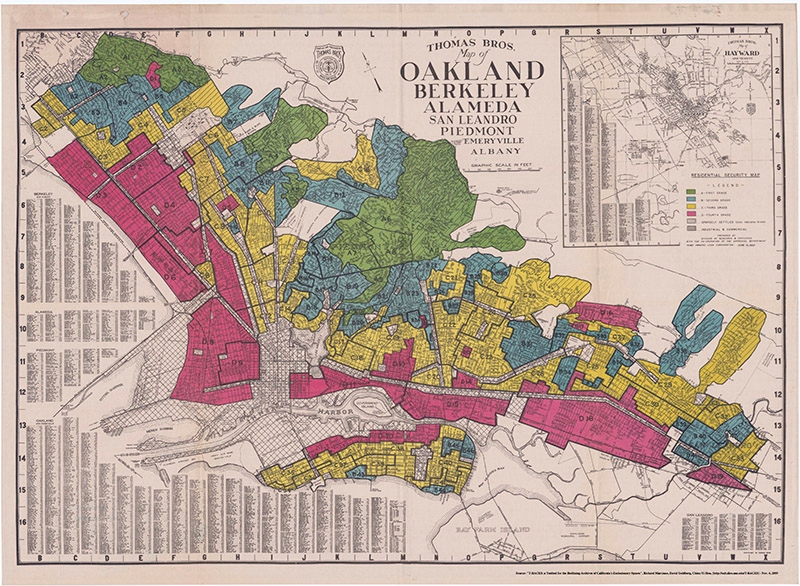FAYETTEVILLE, Ark. – Irene Cheng will present a virtual lecture at 4 p.m. Monday, Nov. 9, as part of the fall lecture series in the Fay Jones School of Architecture and Design. Cheng is an architectural historian and an associate professor at the California College of the Arts. Cheng is also founding principal of Cheng+Snyder, a multidisciplinary design practice that seeks to instigate critical debates about politics, architecture and the city.
Her research explores the entanglements of architecture, culture, politics and the environment in the 19th and early 20th centuries. Her most recent publication is Race and Modern Architecture: A Critical History from the Enlightenment to the Present, co-edited with Mabel O. Wilson and Charles L. Davis II and published by University of Pittsburgh Press in 2020. The book is the product of a multi-year interdisciplinary research initiative directed by the editors called the Race and Modern Architecture Project.
The Fay Jones School's fall lecture series focuses on issues of equity and justice in the built environment. The series is presented in collaboration with Places Journal, an internationally respected online journal of architecture, landscape architecture and urbanism, and the University of Arkansas Office for Diversity and Inclusion. The series is also made possible in part by a gift from Ken and Liz Allen of Fayetteville, part of an overall set of commitments the Allens have made to the school's programs and initiatives in diversity, equity and inclusion.
Registration for the entire lecture series is available on Zoom.
In her lecture, "Notes Toward an Anti-Racist Architectural History," Cheng will look at how, in light of the persistent societal racism and white supremacy laid bare by recent events — including a steady and tragic drumbeat of police killings of Black women and men — schools of architecture this summer began renewed discussions about racism and the possibility of an anti-racist architectural pedagogy.
Cheng will draw on her recent publication Race and Modern Architecture: A Critical History from the Enlightenment to the Present to present historical research on the racial underpinnings of modern architectural theory. She will focus on a formative period in the 19th century when well-known architectural thinkers such as Owen Jones, Eugène Emmanuel Viollet-le-Duc and James Fergusson were inspired by contemporaneous racial theory to develop their ideas about what kind of architecture would be appropriate for the modern day.
She will show how ideas about racial others influenced dichotomous definitions about the modern and primitive, progression and stasis, structure and ornament, that were central to modernism and that have persistent legacies in contemporary architectural discourse.
Additionally, Cheng will describe her teaching and recent involvement in collective initiatives that explore the question "What is an Anti-Racist Architectural History?" and efforts to connect historical research with local anti-racist activism.
Cheng is co-editor with Bernard Tschumi of The State of Architecture at the Beginning of the 21st Century (The Monacelli Press, 2004). Her current book project, The Shape of Utopia: The Architecture of Radical Reform in Nineteenth-Century America (forthcoming, University of Minnesota Press), explores the geometry of architectural projects affiliated with anarchist, socialist, abolitionist, free love, spiritualist and other radical mid-19th-century movements. The project has received generous fellowship support from the National Endowment for the Humanities, the Whiting Foundation, the Graham Foundation, the McNeil Center for Early American Studies and the Massachusetts Historical Society.
Cheng+Snyder's project Museum of the Phantom City was included in the United States pavilion at the 2012 Venice Biennale. The firm's work has been published in Metropolis, Architectural Record, The Architect's Newspaper, The New York Times and in numerous books and blogs. Their work has been supported by fellowships and grants from the Van Alen Institute, the New York Foundation for the Arts and the Ulm School of Design.
Cheng is a founding co-director of the Experimental History Project, an initiative of the California College of the Arts' Master of Advanced Architectural Design in History, Theory, Experiments program. The History, Theory, Experiments program is a platform for exhibitions, research and events exploring experimental practices of architectural, urban and landscape history.
Cheng was the recipient of two teaching awards in 2019: a Diversity Achievement Award from the Association of Collegiate Schools of Architecture and an American Institute of Architects San Francisco Community Alliance Award.
Cheng previously taught at Columbia's Graduate School of Architecture, Preservation, and Planning.
She received a B.A. in Social Studies from Harvard University and an M.Arch. and Ph.D. from Columbia University.
The school is pursuing continuing education credits for this lecture through the American Institute of Architects and the American Society of Landscape Architects.
This virtual lecture is open to the public. For details on watching the lecture, please visit the Fay Jones School's lecture page. To register for the entire lecture series, complete this form on Zoom.
For more information, contact 479-575-4704 or fayjones.uark.edu.
Topics
Contacts
Shawnya Lee Meyers, digital media specialist
Fay Jones School of Architecture and Design
479-575-4744,
Michelle Parks, director of communications
Fay Jones School of Architecture and Design
479-575-4704,
